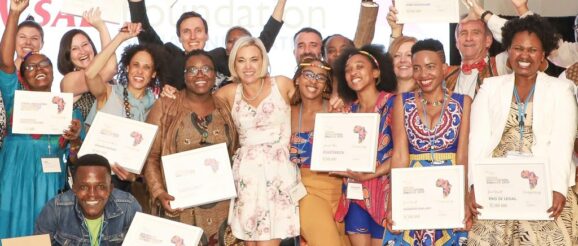Social Innovation Award finalists to receive share of R12.6-million

Seventeen finalists have been selected for the tenth annual Social Innovation and Disability Empowerment Awards.
Six finalists will receive R1.3-million
Out of the 17 finalists, six will be chosen as the official winners and will be announced at a virtually held awards ceremony on 9 February 2021. Each of the six finalists will receive up to R1.3-million in awards and grant funding.
Bridgit Evans, SAB Foundation Director comments on the importance of highlighting entrepreneurs who are utilising tech to solve critical societal issues.
“Disruptive technology and income-generating innovation bring the promise of increased effectiveness, efficiency, and scale. Our aim is to launch and then grow these businesses to the point where they become an attractive option for traditional and impact investors.”
The Social Innovation and Disability Empowerment Awards
Held each year, the awards focus on supporting and recognising innovation that solves a social problem uniquely and efficiently through a sustainable business model.
Evans provides insight into the aims of the awards.
“SAB Foundation’s long-term commitment to this work is underpinned by our belief that the economic, social and environmental issues affecting South Africa and further afield today are escalating too fast to be addressed in traditional ways.”
Since its inception in 2010, the awards have reportedly contributed an additional R219-million per annum to the economy and create nearly 1000 jobs.
Finalists for 2020
With 360 entries made, each applicant underwent three rigorous rounds of judging and analyses by a range of experts from government, civil society, academia, and the private sector.
The list of finalists is below:
Eastern Cape
Soledad Luca De Tena founded Zenzeleni Community Networks, which provides a solar-powered rural community-based high quality, and affordable wireless internet service.
Gauteng
Saul Kornik founded HealthForce, a user-friendly web-based application that enables nurses to improve their clinical care with the support of remote general practitioners via a video link.
Oratile Seabela developed the Malii mobile application that enables taxi commuters to make payments without the use of cash.
Tami Ngalo designed the OYI medical savings card, a prepaid medical expense credit card for individuals and families that do not have access to funds for unexpected medical and healthcare needs.
Wandile Khumalo founded Syked, a virtual private counselling platform for individuals looking for alternative ways of seeking support without putting themselves at risk.
Kathryn Malherbe, CEO at MedSol AI Solutions, launched Invisio AI, a web-based software and application platform to identify abnormal breast cancer masses.
Chelsea Paull founded Umoya Foods, which has developed a range of premium health food products that are sourced from crops that are optimised for small scale farming production.
Kwazulu-Natal
Blessing Nzuza developed the Respo mobile application that offers people an easier way of requesting an ambulance in the event of life-threatening emergencies via e-hailing.
Zamokuhle Thwala launched Agricool, a digital crowdfunding platform that enables individuals to invest in agribusinesses owned by smallholder farmers.
Mpumulanga
Sarah Fraaze established Meat Naturally, a social enterprise supporting communal farmers to build a sustainable farming model that provides market access for red meat producers.
Western Cape
Simon Barson established Word of Mouth digital market system that connects informal micro-enterprises with people in informal settlements looking for local services.
Disability empowerment awards finalists 2020
People with disabilities in South Africa face a number of social and economic barriers and according to reports, currently, unemployment in the sector stands at over 70%.
The SAB Foundation Disability Empowerment Awards aim to find, support, and scale social innovations that are either run by people with disabilities or provide disability solutions to enhance disability access and promote equality and inclusion.
Eastern Cape
Candy Androliakos founded Leafline washable sanitary wear, which are affordable and biodegradable sanitary products, nappies, chair, and bed protectors made from natural fibre.
Sitembele Dlutu created the Sipokuhle Community Development, a sustainable agricultural project that aims to empower young and vulnerable people with intellectual disabilities through skills development and job creation.
Gauteng
Portia Mavhungu designed the Para-Tube fitted seating device that retrofits to any existing wheelchair, with a built-in toilet ensuring independence and dignity for its users.
Jabu Blose founded Virecom, a video remote interpreting system that provides high-definition video remote interpreting on-site interpreting, written-text-to-sign language translation, and training.
Western Cape
The CDT Trust introduced an e-training platform that assists hearing-impaired children to learn spoken language and speech.
The National Institute for the Deaf launched a digital interactive educational book that provides parents or caregivers without South African Sign Language skills the opportunity to interact with their deaf child or infant.
Read more: SA tech startup launches rewards shopping app for locals
Read more: MultiChoice launches bursary fund worth R26-million
Featured image: Social Innovation Awards (Supplied)
The post Social Innovation Award finalists to receive share of R12.6-million appeared first on Ventureburn.
